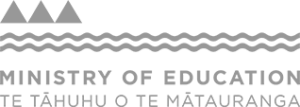CEO Welcome
This quarter has seen another increase across all reports to Netsafe.
This has been another record-high quarter for personal harm complaints, with 815 complaints made. In the scam space, Netsafe has had a large influx of reports of fake sextortion email scams over the quarter. Netsafe’s helpline has received hundreds of requests for assistance, and the advisory on our website shows thousands more people have viewed it in search of information. Although there has been a large spike in reports of this scam, thankfully reports of financial losses have been low.
Unfortunately, reports of financial losses to scams overall has not slowed. This week is Fraud Awareness Week – a week dedicated to raising awareness of scams and fraud in New Zealand. The theme for 2018 is ‘Stop and think – is this for real?’ and focuses on common scams. If your organisation would like to support the week, you can find resources on the Consumer Protection website.
The post-conference statement from The Crossroads conference is now available. The statement provides an overview of the key themes discussed and recommendations, that if implemented, will enhance online safety and digital resilience. The statement covers four key themes of the conference, along with six future directions.
Martin Cocker
CEO, Netsafe

Reporting Overview
July – September 2018 overview
Between July – September 2018, Netsafe received 6% more reports in total than the previous quarter and 33.4% more than the July – September 2017 period.
TOTAL REPORTS (+6%*)
PERSONAL HARM COMPLAINTS (+8.3%*)
SCAM & FRAUD REPORTS (+2.1%*)
OTHER REPORTS (+9%*)
*percentage change based on reports made to Netsafe between 1 April 2018 – 30 June 2018.
2018 YTD overview (January – September)
Netsafe has received a total of 14,750 reports between January – September 2018. This is a 29% increase in reports from the same period in 2017.
YTD TOTAL REPORTS
YTD PERSONAL HARM COMPLAINTS
YTD SCAM & FRAUD REPORTS
OTHER REPORTS
Reports by age group July - September 2018
Overall reports to Netsafe by age group.
14.6%
00-21
25.7%
22-40
39.9%
40-64
19.8%
65+
Reports by region July - September 2018
Reports by gender July - September 2018
55.9%
FEMALE (-5.2%*)
1%
GENDER DIVERSE (0%*)
43.1%
MALE (+7.8%*)
*percentage change based on reports made to Netsafe between 1 April 2018 – 30 June 2018.
Personal Harm Reporting
Between July – September 2018 Netsafe received 815 personal harm complaints. This is 15.4% more than the previous quarter and a 42% increase from the same period in 2017. Personal harm complaints to Netsafe between January – September 2018 total 2,173 and are up 44.8% compared to the same period in 2017 from 1,501 to 2,173.
Top personal harm categories reported July - September 2018
Who makes personal harm complaints? July - September 2018
71%
SELF REPORTED
8%
PARENT OR GUARDIAN
2%
OTHER FAMILY MEMBER
7%
EDUCATOR OR SCHOOL LEAD
3%
FRIEND
9%
OTHER
Scam and Fraud Reporting
$7.4M in scam and fraud losses were reported to Netsafe between July – September 2018. Reported losses in 2018 have surpassed reported losses in 2017 by almost $16M. Losses reported in 2017 totalled $10.1M and currently sit at $26M for January – September 2018. 12.8% of scam and fraud reports to Netsafe between July – September 2018 involved financial loss.
Scam reporting trends
Fake sextortion email scam: A fake sextortion email phishing scam has been affecting New Zealanders in waves this quarter. Netsafe has received 738 reports relating to sextortion scams this quarter compared to 97 in the previous quarter. Although there has been a large influx in reports, reported financial losses to this scam have been low. We believe that this is partly because many people do not understand how to make payments using bitcoin.
How does the scam work? People receive an email that claims their computer has been hacked and that the scammer has recorded intimate recordings of them using a porn website. In some versions of this scam the email header also includes the victim’s password for their online accounts. The email demands that they send a payment (often as bitcoin) to the scammer or claims they will send the recording to the victim’s personal contacts which they claim to have access to. Find out more about the scam on our website.
Scam & fraud snapshot July – September 2018
$7.4M
REPORTED LOSSES
369
REPORTS WITH $ LOSSES
$20,054
AVERAGE LOSS
Scam & fraud snapshot January – September 2018
$26M
YTD REPORTED LOSSES
1,129
YTD REPORTS WITH $ LOSSES
$23,029
YTD AVERAGE LOSS
Top scam categories reported July - September 2018
Education & Engagement Update
Sean Lyons, Director of Education and Engagement
Applications are open for the next Netsafe Online Safety Grant round.
Projects and initiatives that will help to minimise online harm in New Zealand are eligible for up to $100,000 in match funding. Past grant recipients include Life Education Trust, Sticks ‘n’ Stones, Girl Guiding New Zealand, Antworks Studios and the University of Waikato. Applications are open until the end of February 2019. Find more information on our website.
In October, Netsafe held it’s Annual General Meeting for members. Our annual report is now available online for download. The annual report highlights the work that Netsafe has undertaken across the year, and includes case studies of the types of incidents our helpline is providing help with. If you’re interested in becoming a Netsafe member, you can find more information on our website.
If you’d like to get in touch you can email me at [email protected]

Netsafe Research Releases
Online Hate Speech Report
High level findings
- 11% of New Zealand adults reported having been personally targeted with online hate speech in the prior year.
- Of those targeted, about 6 in 10 reported a negative impact from the experience.
- In the prior year, about 3 in 10 of all participants had seen or encountered online hate speech that targeted someone else.
Estimating Societal Costs of Cyberbullying
The report gives NZ a starting point to begin to understand the full impact of this behaviour here in New Zealand, and where to best focus interventions and responses. It highlights that cyberbullying has a much wider affect than the individual person being targeted and that more could be done to address the risks.
High level findings
- The estimated economic effect of online harm to individuals, communities and interventions is $444M every year.
- 1 in 10 NZ adults have personally experienced online harm.
- 64% of people are worried about the impact of cyberbullying and its effects on society at large.
Become a Netsafe member
Netsafe members receive our quarterly reports before they are publicly released. Netsafe is an incorporated society with members from across the country. Our members represent organisations with an interest in building confidence in using digital technology. Membership is free, easy to apply for and it gives you and your organisation the opportunity to play a part in the development of online safety and the use of digital technology right here in New Zealand.
Find out more about being a Netsafe member, or apply to join today by completing our online form.
About Netsafe
Netsafe is New Zealand’s independent, non-profit online safety organisation. Taking a technology-positive approach to the challenges that digital technology presents, we work to help people in New Zealand take advantage of the opportunities available through technology by providing practical tools, support and advice for managing online challenges.
Find out more about Netsafe at www.netsafe.org.nz
Report Data
The data in this quarterly report comes from reports/complaints made to Netsafe during the reporting period. The report is reflective of the data available for reports/complaints at the point in time that the data has been provided for the quarterly report – within six weeks of the quarter ending.
Reports/complaints are made to Netsafe by individuals, businesses and other organisations. The insights in this report come from high level reporting trends, and do not include easily identifiable information about specific reports/complaints.
- View the 1 April 2018 – 30 June 2018 quarterly report.
- View the 1 January 2018 – 31 March 2018 quarterly report.
For media queries please email [email protected]
*percentage change based on reports/complaints made to Netsafe in the previous quarter of 1 April 2018 – 30 June 2018. If you have queries about the information in this report, please email [email protected]




